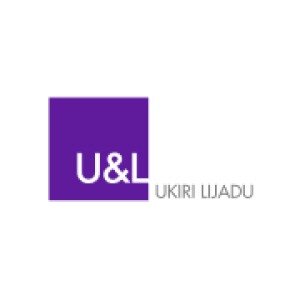Best Art & Cultural Property Law Lawyers in Maitama
Share your needs with us, get contacted by law firms.
Free. Takes 2 min.
List of the best lawyers in Maitama, Nigeria
About Art & Cultural Property Law in Maitama, Nigeria
Art & Cultural Property Law in Maitama, Nigeria, focuses on the legal aspects surrounding the protection, transfer, and use of artworks and cultural properties. This field of law ensures that cultural heritage is safeguarded, preserved, and respected. It covers various issues such as ownership rights, intellectual properties, repatriation of cultural artifacts, and compliance with international conventions. Situated in an area that is rich in cultural diversity, Maitama, as part of Abuja, is subject to both federal and local regulations aimed at preserving Nigeria's cultural heritage while promoting contemporary art forms.
Why You May Need a Lawyer
Engaging a lawyer specializing in Art & Cultural Property Law can be essential in numerous situations. These may include:
- Provenance and due diligence issues when acquiring art pieces.
- Disputes over ownership or authenticity of artworks.
- Negotiating the sale or licensing of artworks and cultural properties.
- Representation in cases involving the illicit trafficking of cultural objects.
- Advising on tax implications related to owning or transferring art.
- Helping museums and galleries navigate regulatory compliance.
- Providing guidance on efforts to repatriate cultural artifacts.
- Assisting artists in protecting and enforcing intellectual property rights.
Local Laws Overview
In Maitama, the legal framework for Art & Cultural Property Law is influenced by both national and regional laws. Key legislation includes:
- National Commission for Museums and Monuments Act: Governs the preservation of national antiquities and museums.
- Cultural Policy for Nigeria: Emphasizes the importance of Nigerian cultural heritage and provides a basis for governmental and private interventions.
- Copyright Act: Protects the intellectual property rights of artists and creators.
- Customs and Excise Management Act: Regulates the export and import of cultural property.
- International Conventions: Nigeria is a signatory to conventions like the UNESCO 1970 Convention, which is aimed at prohibiting illicit trade and promoting restitution of cultural property.
Frequently Asked Questions
What is Cultural Property?
Cultural property refers to objects that have cultural, historical, or traditional significance to a community or nation, including artworks, manuscripts, monuments, and archaeological sites.
How is ownership of cultural property determined in Nigeria?
Ownership is typically determined by national heritage laws, historical records, and provenance documentation. Various statutes govern different types of cultural properties.
Can art be seized under Nigerian law?
Yes, art can be seized if it is proven to be acquired illegally or is part of an illicit trade, following legal processes under applicable laws.
What steps should I take if I acquire a questionable piece of art?
Conduct due diligence on the artwork's provenance, consult legal experts in cultural property, and possibly report to relevant authorities if the artwork's legitimacy is in doubt.
What are the penalties for illicit dealing in cultural property?
Penalties may include fines, imprisonment, restitution of property, and loss of rights to deal in art sales and auctions, according to the severity of the offense.
Can I export cultural artifacts from Nigeria?
The export of cultural artifacts is heavily regulated, requiring permits from the National Commission for Museums and Monuments and compliance with international treaties.
How can artists protect their work legally?
Artists can protect their work through copyright registration, contracts, and ensuring that any licenses or sales agreements are clearly documented and legally binding.
What is repatriation of cultural property?
Repatriation refers to the return of cultural artifacts to their country of origin or rightful owner, often facilitated by international agreements and negotiations.
Are there any cultural heritage sites in Maitama?
While Maitama itself may not house prominent national heritage sites, it is part of Abuja, which is home to cultural institutions like the Nigerian National Mosque and the Millennium Park.
Who do I contact for a dispute over art ownership?
For disputes, it is advisable to contact a lawyer specializing in Art & Cultural Property Law, or approach bodies like the National Commission for Museums and Monuments or local legal authorities.
Additional Resources
For those seeking more information or assistance, consider reaching out to the following resources:
- National Commission for Museums and Monuments: The primary agency for cultural heritage preservation and management in Nigeria.
- Nigerian Bar Association: Provides access to qualified legal practitioners specializing in various fields, including Art & Cultural Property Law.
- UNESCO Nigeria: Offers information on international conventions and support in cultural heritage protection efforts.
- Local Art Galleries and Museums: Often have resources and networks for artists and collectors to connect with legal experts.
Next Steps
If you require legal assistance in Art & Cultural Property Law in Maitama, Nigeria, consider the following steps:
- Identify your specific legal needs and gather any relevant documentation.
- Consult with a lawyer or legal firm with expertise in Art & Cultural Property Law.
- Engage with local art institutions for recommendations on reputable legal services.
- Explore online directories of the Nigerian Bar Association for qualified lawyers in your region.
- Stay informed about changes in laws and policies by accessing educational materials and attending seminars related to art law.
Lawzana helps you find the best lawyers and law firms in Maitama through a curated and pre-screened list of qualified legal professionals. Our platform offers rankings and detailed profiles of attorneys and law firms, allowing you to compare based on practice areas, including Art & Cultural Property Law, experience, and client feedback.
Each profile includes a description of the firm's areas of practice, client reviews, team members and partners, year of establishment, spoken languages, office locations, contact information, social media presence, and any published articles or resources. Most firms on our platform speak English and are experienced in both local and international legal matters.
Get a quote from top-rated law firms in Maitama, Nigeria — quickly, securely, and without unnecessary hassle.
Disclaimer:
The information provided on this page is for general informational purposes only and does not constitute legal advice. While we strive to ensure the accuracy and relevance of the content, legal information may change over time, and interpretations of the law can vary. You should always consult with a qualified legal professional for advice specific to your situation.
We disclaim all liability for actions taken or not taken based on the content of this page. If you believe any information is incorrect or outdated, please contact us, and we will review and update it where appropriate.









